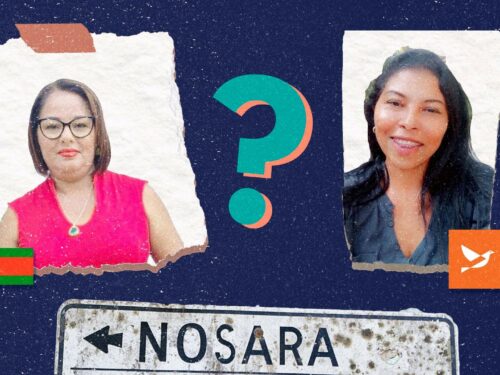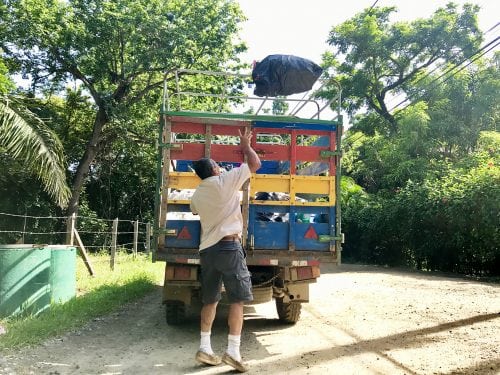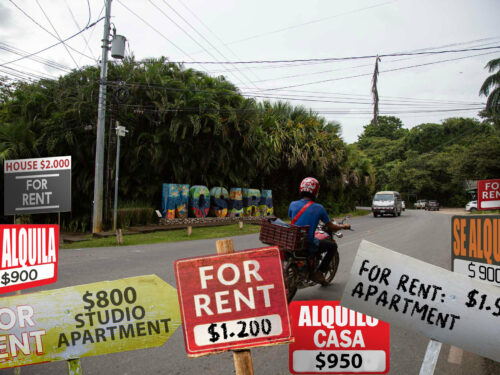
It’s 2 p.m. in the Selina hotel’s restaurant in Nosara. In an open space, surrounded by trees, a small group of boys and girls gets ready to apply their creativity with paintings on canvases and objects. Following strict hygiene protocols, they draw the atmosphere of the hotel, interact with each other and find freedom from the stress of being at home.
Since March, the Ministry of Health and the Ministry of Education (MEP) suspended in-person classes throughout the country, which left more than one million children in confinement, according to data from the State of the Nation.
With the abrupt change, students not only stopped learning in classrooms but also stopped spending time with other children in school and other places.
The goal of the Arte a la Mar project is precisely for little ones to be able to release stress and interact with other children while respecting safety measures, according to its organizer Vicky Naranjo.
The project has existed since 2019, but with a different concept, described by the artist as a Drink and Draw.
“Adults would come to Selina to spend the night painting and creating with me, while they drank and dined at Selina’s restaurant,” explained the artist.
Under that dynamic, the hotel paid the artist $50 per lesson. If she participated in special events like Halloween or the Day of the Dead, they paid her more.
With the pandemic, Naranjo couldn’t continue with the activities and looked for solutions to reopen the art workshops, respecting measures from the Ministry of Health. Upon arrival, children must wash their hands, there is hand sanitizer in the recreation space and they pay special attention to possible symptoms similar to those of COVID-19. In addition, everyone has to wear masks.
A maximum of just ten children can attend the workshops and they must respect distancing within their social bubbles, although usually about six come. Thus, with the hygiene measures and protocols defined, the artist decided to focus on young people.
The hotel agreed with the artist to restart the activities as long as the children had hygiene products at hand and respected all the health safety standards.
The project is basically financed by us with an investment for materials. However, Selina lends us the place and they leave 30% of the profits,” said the artist.
For the participants’ caregivers it is also a relief. “Children don’t understand why they can’t go to parks. It’s important that they have activities to have fun and share,” said mother Andreina Lopez.
Art For All
Each class costs $25 for foreigners. For Costa Ricans, the artist has a “symbolic price.” They can contribute materials or help in the workshops instead of paying for it.
“Normally, foreigners already have a more artistic culture, so we want to work on that creative side and that knowledge of art for us Costa Ricans,” Naranjo pointed out.
Although they can help with materials, parents don’t have to buy paints or brushes for each class. All of the materials are bought by the workshop organizers.
For foreigners, they also have some special offers. “Payment is per day, but if children agree to come for the whole month, the plan is for a discount to be applied for them. Or if a family has more than one child, it may also be cheaper for them,” commented the artist.
Lopez contributes twice a week. She tidies up the area or helps the teacher during class by being attentive to the children.
Despite the difficulties and fears of the parents, the artist has seen that the project has been growing during the pandemic. She is surprised that more children show interest with each passing day. Currently about 15 children attend, divided into two classes.
I had doubts about hygiene in light of this pandemic, because children are at greater risk and also because they are not mindful of the measures. But when I got to the camp, I saw that the girls were using protective measures and that they had hand sanitizer at the entrance, and that gave me peace of mind,” said Andrea la Luna, mother of one of the children.
As of September 1, Nosara had nine active cases and seven people recovered, according to official data from the Ministry of Health. Guanacaste has 278 active cases.
Plans to Expand
The camp coordinators are evaluating the idea of giving the workshops virtually if the pandemic conditions worsen. They haven’t done so yet because they want to find a way for the children to receive the same quality of care that they get in in-person classes.
The mothers agree. “If the classes were virtual, I would also do it. I wouldn’t have any problem with it. The only thing would be to harmonize schedules so that I could be supervising, because I do believe that it is important that an adult is present,” Lopez commented.
As much as doing the workshop virtually is a possibility, Arte a la Mar prefers the idea of expanding its services, for example offering it to other cantons or working with elderly people.
For Selina, it is also an opportunity for growth. “I have already participated in some workshops. The truth is that one feels like a child and is freed from everything,” related Andrea Canessa, the experience manager for Selina de Nosara.








Comments